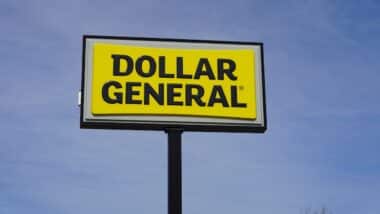 Bank overdraft fees have been presenting problems for lower-income customers for years. These customers are often living paycheck to paycheck, and have to be highly vigilant in watching their purchase amounts to prevent their accounts from being overdrawn and incurring bank overdraft fees.
Bank overdraft fees have been presenting problems for lower-income customers for years. These customers are often living paycheck to paycheck, and have to be highly vigilant in watching their purchase amounts to prevent their accounts from being overdrawn and incurring bank overdraft fees.
Bank overdraft fees are similar to insufficient fund fees. They incur when the consumer’s primary checking account becomes overdrawn and the bank loans the customer funds to cover the transaction.
Banks and other financial services charge service fees for overdraft protection, which is supposed to prevent the embarrassment of card decline and to cover transactions that would otherwise have been declined.
Overdraft protection was initially created as a way to help protect consumers from their transactions being declined, but it has now become a source of annoyance for consumers and an alleged method for banks and other financial institutions to collect extra money from their customers.
While overdraft protection policies vary between banks, customers have complained that they are worded in a confusing manner and do not make proper disclosures about how the bank determines when and whether to process an overdraft purchase. This essentially means that bank overdraft purchases typically occur at the financial institution’s discretion, which then incurs an overdraft fee.
Typically, overdraft fees average about $35 each, which must be paid back by a designated deadline. However, many consumers are caught off guard by how quickly these overdraft fees can accumulate, or by the fact that multiple bank overdraft purchases can occur in a single day. This causes massive financial strain for customers and major profits for banks.
Overview of Bank Overdraft Protection Problems
According to the Consumer Financial Protection Bureau, it is currently estimated that consumers pay approximately $17 billion each year in bank overdraft fees. While federal law requires that banks and other financial institutions provide bank overdraft protection as an option to customers, the customers must opt for the service.
However, a recent report from Pew from Charitable Trusts states that nearly three out of four consumers do not realize they have a choice in bank overdraft protection. In addition, the report suggests consumers would be better able to handle small installment loans with transparent contacts to customers.
These loans would ideally be capped at no great five percent of the customer’s paycheck, providing a safe alternative to overdraft fees. The Pew report, published in December 2017, was based on a telephone survey conducted between April and May 2017 with over 1,000 adults who had reported paying at least one overdraft fee the year before.
With the right information, bank customers have ways in which they can avoid getting hit with overdraft fees. Consumers can avoid signing up for bank overdraft protection in the first place, or cancel it if they already have it. If they do not sign up for bank overdraft protection, transactions that would have overdrawn the account would simply be declined.
The Consumer Financial Protection Bureau has been developing overdraft disclosure forms that could give consumers a better understanding of their rights and obligations. It’s not certain when or whether the CFPB will complete this project and make the forms available, however.
Do YOU have a legal claim? Fill out the form on this page now for a free, immediate, and confidential case evaluation. Some of the banks and credit unions being investigated include, but are not limited to:
- HSBC Bank
- UMB Bank
- State Employees Credit Union
- Pentagon Federal Credit Union
- Boeing Employees Credit Union
- Alliant Credit Union
- Star One Credit Union
- First Technology Federal Credit Union
- America First Credit Union
- American Airlines Federal Credit Union
- Alaska USA Federal Credit Union
- Vystar Credit Union
- Citizens Equity First Credit Union
- Teachers Federal Credit Union
- ESL Federal Credit Union
- Patelco Credit Union
- DFCU Financial Credit Union
The attorneys who work with Top Class Actions will contact you if you qualify to let you know if an individual lawsuit or class action lawsuit is best for you. Hurry — statutes of limitations may apply.
ATTORNEY ADVERTISING
Top Class Actions is a Proud Member of the American Bar Association
LEGAL INFORMATION IS NOT LEGAL ADVICE
Top Class Actions Legal Statement
©2008 – 2025 Top Class Actions® LLC
Various Trademarks held by their respective owners
This website is not intended for viewing or usage by European Union citizens.
Get Help – It’s Free
Join a Free Bank & Credit Union Overdraft Fee Class Action Lawsuit Investigation
If your bank and credit union has engaged in deceptive overdraft fee practices, you may have a legal claim. Fill out the form on this page now to find out if you qualify!
An attorney will contact you if you qualify to discuss the details of your potential case.
In order to properly investigate overdraft fee claims, you may be required to disclose bank statements to overdraft fee attorneys. Please note that any such information will be kept private and confidential.
ATTORNEY ADVERTISING
The choice of a lawyer is an important decision and should not be based solely on advertisements.
E-mail any problems with this form to [email protected]
PAID ATTORNEY ADVERTISEMENT: THIS WEB PAGE IS AN ADVERTISEMENT AND THE PARTICIPATING ATTORNEY(S) ARE INCLUDED BECAUSE THEY PAY AN ADVERTISING FEE. The attorney in charge of this advertisement is T.Kick. It is not a lawyer referral service or prepaid legal services plan. Top Class Actions is not a law firm. Top Class Actions does not endorse or recommend any lawyer or law firm who participates in the network, nor does it analyze a person’s legal situation when determining which participating lawyers receive a person’s inquiry. It does not make any representation and has not made any judgment as to the qualifications, expertise or credentials of any participating lawyer. No representation is made that the quality of the legal services to be performed is greater than the quality of legal services performed by other lawyers. The information contained herein is not legal advice. Any information you submit to Top Class Actions does not create an attorney-client relationship and may not be protected by attorney-client privilege. Do not use the form to submit confidential, time-sensitive, or privileged information. All photos are of models and do not depict clients. All case evaluations are performed by participating attorneys.












